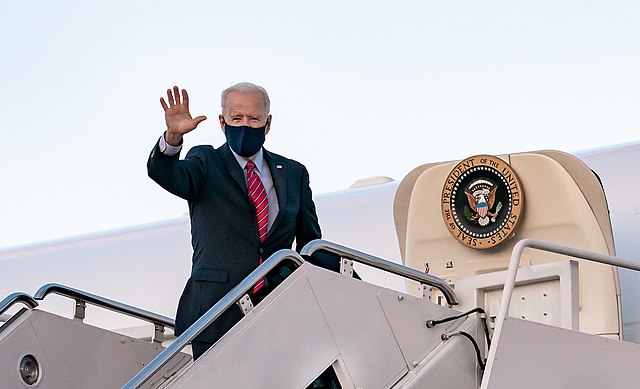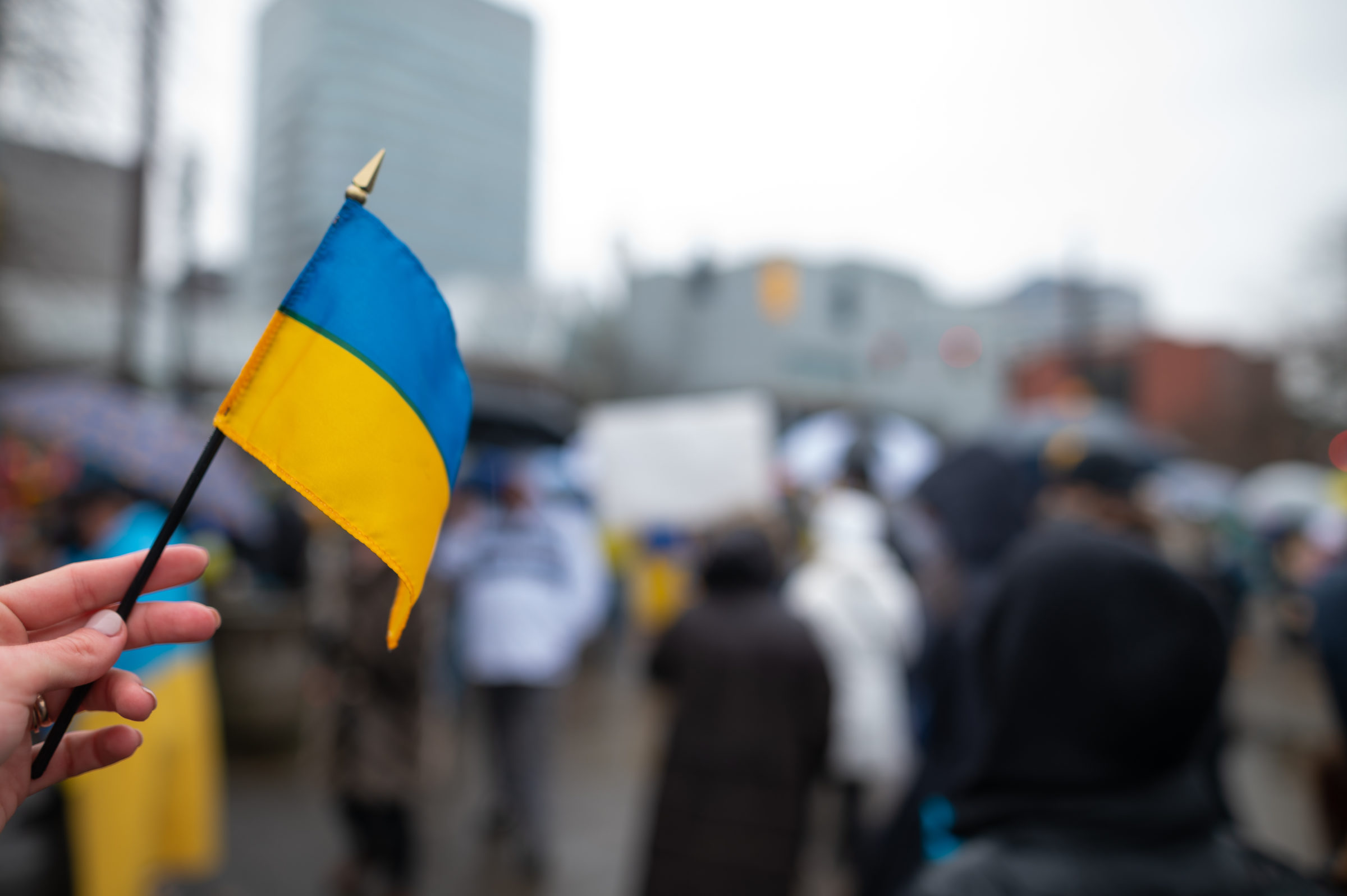


Israel at War

The Rehabilitation of a Pariah

Will Russia’s Invasion of Ukraine Spark the Next World War?

Surrogate Babies of Ukraine Treated Like a Commodity

Can Britain’s Trump Survive?
Obama’s Distraction Syndrome
Generally speaking, it is a bootless enterprise to try to psychoanalyze a President, or any politician. But it certainly appears that President Obama must be frustrated by his failures in the fight against ISIS and other terrorists, not to mention his looming catastrophic and bogus deal to deter Iran’s nuclear ambitions (they really do want and will get a nuke soon). So perhaps he feels that the thing to do in this circumstance is to change the subject to something more manageable. That would be climate change. The extent to which he can go is found in his strange address to the Coast Guard Academy.
Well, of course, the Coast Guard has almost nothing imaginable to do with causing or curing any climate change, to the extent there is much human caused climate change. Indeed, it is hard to see that President Obama, after six and a half years in office, has done anything significant to improve the world’s climate, despite 2008 campaign promises. But he certainly does have the authority and the power to talk about it. And talk about it.
The President told the Coast Guard Academy graduates, “Climate change constitutes a serious threat to global security, an immediate risk to our national security, and, make no mistake, it will impact how our military defends our country…And so we need to act — and we need to act now.”
The graduates must have mentally scratched their heads trying to figure out the relevance to them. So the President helped them: the kidnappings of Boko Haram in Nigeria were triggered by “crop failures”! There has been flooding in streets in South Carolina and Florida. Really. Setting aside the tenuous nature of the connection these matters to “climate change”, just what the Coast Guard was supposed to do about it the Commander in Chief did not say. Read More ›
Israeli Tech Can Slake World’s Water Thirst
Here is a series of connected articles that explain Israel’s innovations in drip-irrigation (much discussed also in George Gilder’s The Israel Test), drought resistant crop development, desalinization, squeezing water out of dew and creating winter-fed cisterns like the Nabateans used 2000 years ago in the “rose red” city of Petra. Read More ›
When Unfortunate Politicians Are Turned Out Naked to the World
Originally published at The Stream. “April is the cruelest month,” wrote T. S. Eliot, but for Britain’s Liberal Democrats and Labor (er, Labour) the cruelest month will always be May. In particular, Nick Clegg of the Liberal Democrats and Ed Milliband of Labour will never forget the very night in May when each was stricken with what might be called “Sudden Onset SDD”— Staff Deprivation Disorder. It’s sometimes known as “Morning After Disease.” In a matter of election return minutes, Mr. Clegg lost his office as Deputy Prime Minister, lost his government car and driver, his scheduling assistant, his government computers, his government cell phone, his security detail — yea, in a sword’s flash, his salary. Likewise, Mr. Milliband with Read More ›
Reflections on the Revolution in England (and, oh, yeah, Scotland)
Our friend A. M. Radcliff offers this amusing assessment of the recent election. It is rendered even more delicious when one realizes the serendipity of yesterday’s Gospel reading in the Church of England (and throughout much of the liturgical Christian world) was John 15:13.
Greater Love
“Greater love hath no man than this: that he lay the down the lives of his friends for his own”.The words were famously used in the House of Commons to taunt the then Prime Minister Harold Macmillan in 1962 (when, in an episode later called “the night of the long knives’, he suddenly sacked seven ministers in his cabinet in an effort revive his faltering fortunes).
There is now a peculiar spice to these words, not only because they were delivered by the late Jeremy Thorpe MP. (Who, as it happened was later accused and put on trial for attempting a real murder of which he was ultimately acquitted). But also, because he was speaking as a Liberal MP, and taunting the then Conservative Prime Minister. This resonates now, as it can well be argued that the current Prime Minister –again a Conservative— has just won his election victory at the cost of sacrificing some 49 former friends. Only this time, the victims were not fellow Conservatives but rather his former coalition partners in the Liberal Democrat Party.
Having gone into coalition with the Government for five years, the party has now been savaged by the electorate, which reduced their number of MPs from 57 to 8 (even though they got 7.9 % of the national vote while the UK Independence got 12.6% but only one seat as their vote was too widely but thinly spread). It may seem a cruel paradox that the electorate penalized the Liberal Democrats for propping up the last Conservative government while increasing its support for the Conservatives themselves. This points to a critical error of judgment by the Liberal leader Nick “calamity” Clegg (as he was once known and will no doubt be again hereafter). After all, if you have been part of a government it is hard to run in the subsequent election a campaign attacking it. Was it not predictable that the electorate was likely to conclude that if you are going to support a Conservative government you might as well be a Conservative and so preferred to vote for the real thing instead?
The Liberals tactic of suggesting that their future role could be to mitigate the extremism of either main party, with whom they were however open to negotiating a new coalition, inevitably ran the risk of seeming unprincipled. Their moralizing tone was also undermined by Mr. Clegg’s infamous willingness to abandon a pledge, made in the 2010 election campaign, to scrap all tuition fees for students, since, once in government, he agreed to charge them up to 9000 each a year instead. His suggestion that his party could give a heart to a future conservative administration or a mind to a Labour one, now looks unfortunate, for the electorate as it turned out wanted neither, though in a rather different sense it did claim his head, since Mr. Clegg has now resigned, just like Mr. Milliband the leader of the Labour Party and Mr. Nigel Farage that of UK Independence Party who failed to win his own seat.
The larger story is, however, that of the Labour Party and the rise of the Scottish Nationalist Party (SNP). For here again, it was a coalition, or rather the mere idea of one, that proved Labour’s undoing. Historically, the Labour party has for many decades been disproportionately strong in Scotland, which, like much of Wales was seen as a Labour heartland. Indeed, without Scottish Labour MPs, the Labour Party could not have formed governments in the past. And here, David Cameron’s ill managed entanglement in the snares of the Referendum in Scotland, has born unexpected fruit, for the electorate it seems had grown tired of being presumed upon by a Labour party which they saw as very London based. While many leading Labour figures, such as former Prime Minister Gordon Brown, have founded their careers in Scotland, the impression was allowed to grow that their main focus was in the south. Despite losing the Referendum, the SNP gained massively from its campaigning and publicity and thus became a natural home for those who wanted to protest. Moreover, it preached a siren message that it would extract ever more funding from England in return for supporting a Labour Party which could no longer take power without it. This was doubly lethal for Labour, as it encouraged its former supporters in Scotland to leave while frightening English voters back to the Conservative party for fear that they could otherwise end up with a government effectively controlled by a small minority of Scottish Nationalist MPs.
Ultimately, the Labour party ended up routed in Scotland while also losing any claim to be a national party in the rest of the UK, where its support is now limited to the north and certain urban areas. Many forget that from its origins the Scottish National Party has had roots in the extreme left, so it was only natural that they would see their best ally for a coalition as the Labour Party, in what they described, with joyful anticipation, as a unity of progressive politics. They failed to see that this would be a hug of death for the Labour Party nationally.
The problem now for the SNP is that, while they have 56 of the 59 seats in Scotland, (with just 4.7% of the British vote) without a coalition they can make much noise but wield no power. And they do not seem to want another Referendum yet, which might in theory secure such power, as they realize they would probably lose it. So the only way now for them, in terms of popular support, is probably down, since they face massive expectations upon which they simply cannot deliver. Yet, over the long term it has to be a danger to the Union if they are enabled only ever to complain and never be held responsible for the politics of grievance which has served them so well.
Nonetheless, since they won such a high percentage of the Scottish vote, they will be a problem for Mr. Cameron, who may be faced with the temptation of having to give Scotland even more autonomy than he promised in an ill considered panic in the last days before the Referendum. The danger here is that, if he gives full fiscal independence and removes all the subsidies from England he will be seen as exacting revenge, and will thus fuel secession, but he cannot be put in the position of being blackmailed into writing the Nationalists a blank check. Perhaps however, it was a telling image the day after the election when, in an official ceremony to mark VE day in London at the Cenotaph, the SNP leader, Nicola Sturgeon, lined up dutifully with all the other party leaders to lay a wreath. Does this evidence, even now, the power of the “Establishment” to subsume those who would repudiate it? It is rumoured that Mr. Cameron has already been on the phone in extensive conversations with Mrs. Sturgeon, but she may be wise to beware his bearing gifts, after all, look what happened to his late liberal friends…
Mr. Cameron, however, clearly does face major problems. He is committed to a referendum on the European Union, but hopes it will leave the UK still a member. Given his shaky recent record with referenda, there has to be some doubt as to whether he can easily achieve this. And one of the reasons that the EU views such votes with disapproval is that, when asked, European electorates have a disconcerting habit of voting the “wrong” way (As the saga in Ireland when they had to keep on holding referenda until the Maastricht treaty was finally approved illustrated.) The European establishment is also disinclined to make concessions, in return for a reluctant UK membership, but without them Mr. Cameron will lack the basis upon which to argue that we should stay.
Domestically too, the Tory reputation for managing a sound economy means that many of the cuts needed to reduce the dangerously high level of national debt will now have to be implemented. Yet during the election campaign, in response to ever more rash pledges by Labour to protect spending, the Tory Party also “ring fenced” all manner of budgets. So where are the cuts to be found, unless the areas that remain unprotected are to be utterly savaged in ways that are politically unfeasible? This connects closely to one of the subjects most notable by its absence from the campaign, which is that of what Britain’s future place in the international polity of nations should be. Read More ›

